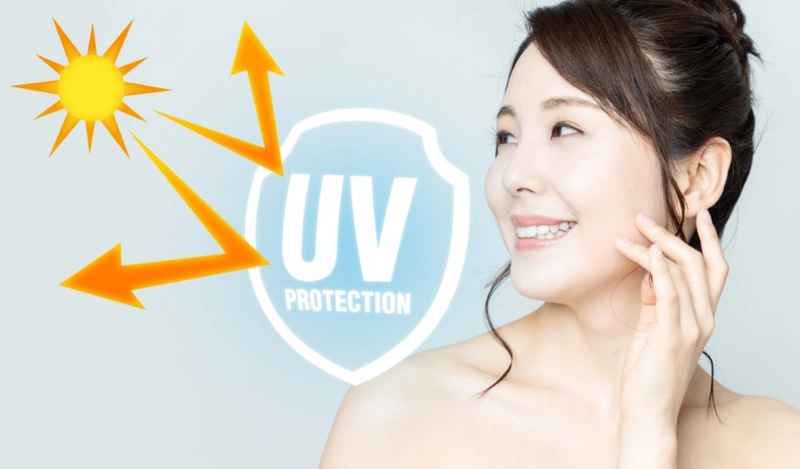
Physical vs Chemical Sunscreen: What’s the Difference?
Why Sunscreen Is a Must for Skin Protection
The best way to protect your skin from harmful UV rays is to use sunscreen daily. There are two main types of sunscreen on the market: physical sunscreen (also called mineral) and chemical sunscreen. Each type works differently and suits different skin needs.
Physical vs Chemical Sunscreen: Key Differences
| Feature | Physical Sunscreen | Chemical Sunscreen |
|---|---|---|
| Main Ingredients | Titanium Dioxide, Zinc Oxide | Avobenzone, Oxybenzone, Sulisobenzone… |
| How It Works | Forms a barrier that reflects UV rays | Absorbs, transforms, and breaks down UV rays |
| Other Name | Sunblock | Sunscreen |
| Advantages | – Works immediately after application |

-
Less irritating; safe for sensitive skin & babies
-
Provides long-lasting protection – Lightweight, non-greasy, non-comedogenic
-
Leaves no white cast, absorbs quickly
-
Requires less product
-
Wide range of SPF & water-resistant formulas
-
Blends easily with makeup
Disadvantages – Thick texture; may clog pores -
Less suitable for outdoor sports or sweating
-
Can leave a visible white layer
-
Hard to blend with foundation – May cause irritation for sensitive skin
-
Less stable; needs reapplying every 2 hours
-
Takes 15–20 minutes to become effective
-
Can cause acne in oily skin types
How to Choose the Right Sunscreen
Previously, people used names like sunblock or sunscreen to distinguish between the two types. Today, many sunscreens are labeled as sunmilk, suncream, or sungel, making it harder to tell them apart by name alone.
👉 Pro tip: Always check the ingredients list.
-
If you see zinc oxide or titanium dioxide, it’s a physical sunscreen.
-
If the ingredients list includes avobenzone, oxybenzone, or other organic compounds, it’s a chemical sunscreen.
Choosing Based on Skin Type
-
Sensitive skin or babies: Choose physical sunscreen for its gentler formula.
-
Oily or acne-prone skin: Chemical sunscreen may be more comfortable due to its light texture—but beware of potential irritation.
-
Outdoor activities: Go for water-resistant formulas, whether physical or chemical.
-
Makeup wearers: Chemical sunscreens often blend better with foundation and can double as a primer.

What About Hybrid Sunscreens?
Many modern sunscreens are hybrid formulas that combine both physical and chemical filters. These products aim to balance the pros of both types:
-
Lighter texture
-
Less irritation
-
Better UV protection
-
No white cast
Hybrid sunscreens are ideal for those who want effective, long-lasting protection without compromising on comfort.
Final Thoughts
With so many sunscreen options available today, choosing the right one depends on understanding your skin, environment, and personal needs. Whether you prefer a physical, chemical, or hybrid sunscreen, the most important thing is to use it daily—rain or shine.